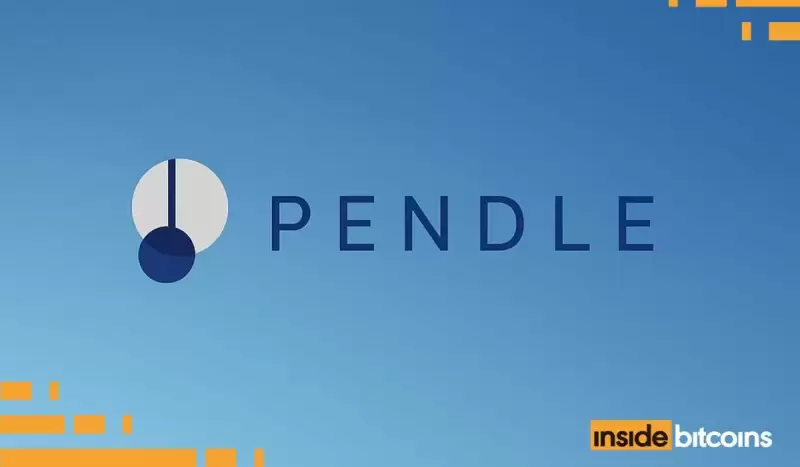 |
|
 |
|
 |
|
 |
|
 |
|
 |
|
 |
|
 |
|
 |
|
 |
|
 |
|
 |
|
 |
|
 |
|
 |
|
選挙プロセスの透明性と安全性を確保するための前例のない動きとして、ルーマニアは11月24日の次期大統領選挙に向けてブロックチェーン技術を導入する予定だ。

In an unprecedented move to ensure transparency and security in electoral processes, Romania is set to implement blockchain technology for the upcoming presidential elections on November 24. The groundbreaking initiative is spearheaded by the Permanent Electoral Authority (Autoritatea Electorală Permanentă), marking a significant shift in the way votes are counted and validated in the country.
選挙プロセスの透明性と安全性を確保するための前例のない動きとして、ルーマニアは11月24日の次期大統領選挙に向けてブロックチェーン技術を導入する予定である。この画期的な取り組みは常任選挙管理局(Autoritatea Electorală Permanentă)が主導しており、選挙における重要な変化を示している。その国での投票の数え方と検証方法。
Romania's decision to adopt blockchain technology is a bold step towards enhancing the integrity of electoral outcomes. By employing this cutting-edge technology, the country aims to secure the voting process against tampering and fraud, providing a verifiable and transparent record of every vote cast. This approach signals a transformation in public confidence in electoral systems, setting a potential example for other nations.
ルーマニアのブロックチェーン技術採用の決定は、選挙結果の完全性を高めるための大胆な一歩です。この最先端のテクノロジーを採用することで、国は改ざんや不正行為から投票プロセスを保護し、すべての投票について検証可能で透明性のある記録を提供することを目指しています。このアプローチは選挙制度に対する国民の信頼の変化を示しており、他国に模範を示す可能性がある。
Known for its robust security features, such as decentralization and encryption that prevent unauthorized modifications, blockchain technology is being harnessed to resolve longstanding electoral challenges. The implementation in Romania's presidential election underscores the importance of adopting modern solutions. This move is expected to not only improve vote accuracy but also boost trust in democratic processes among citizens.
ブロックチェーン技術は、不正な変更を防ぐ分散化や暗号化などの堅牢なセキュリティ機能で知られており、長年にわたる選挙の課題を解決するために活用されています。ルーマニア大統領選挙での実施は、現代的な解決策を採用することの重要性を浮き彫りにしました。この動きにより、投票の精度が向上するだけでなく、国民の民主的プロセスに対する信頼も高まることが期待されている。
As Romania pioneers this technology in national elections, the potential ripple effects for global electoral practices are significant. Observers worldwide are keenly watching Romania's success, which could catalyze a broader application of blockchain in elections across different countries. This technological advancement represents a promising future for electoral integrity on a global scale.
ルーマニアが国政選挙でこのテクノロジーを先駆的に導入しているため、世界の選挙慣行への潜在的な波及効果は重大です。世界中の監視者がルーマニアの成功に注目しており、各国の選挙におけるブロックチェーンのより広範な適用を促進する可能性がある。この技術の進歩は、地球規模での選挙の誠実さにとって有望な未来を表しています。
***
***
As Romania ventures into the uncharted territory of blockchain-based voting for its upcoming elections, this pioneering effort raises compelling questions about the future of democracy in the digital age. While the nation is taking a bold leap to enhance the transparency and security of its electoral system, it's crucial to explore the broader implications of this technological evolution on societies globally.
ルーマニアが今後の選挙に向けてブロックチェーンベースの投票という未知の領域に足を踏み入れる中、この先駆的な取り組みはデジタル時代の民主主義の将来について切実な疑問を投げかけている。国は選挙制度の透明性と安全性を強化するために大胆な飛躍を遂げていますが、このテクノロジーの進化が世界中の社会に与える広範な影響を調査することが重要です。
Blockchain technology could fundamentally reshape how elections are conducted worldwide. With its decentralized and immutable nature, blockchain can ensure that each vote is tamper-proof and independently verifiable. This not only mitigates the risk of fraud but also exemplifies a transparent voting process that can engender greater trust among citizens. For countries that have struggled with electoral fraud and manipulation, blockchain presents a lifeline for restoring faith in democratic processes.
ブロックチェーン技術は、世界中で選挙が行われる方法を根本的に変える可能性がある。ブロックチェーンは分散型で不変の性質を備えているため、各投票が改ざんされず、独立して検証可能であることを保証できます。これは、詐欺のリスクを軽減するだけでなく、国民の間でより大きな信頼を生み出すことができる透明な投票プロセスの例でもあります。選挙不正や不正操作に苦しんできた国々にとって、ブロックチェーンは民主主義プロセスへの信頼を回復するための命綱となる。
However, this advancement is not without its challenges. One significant concern is the digital divide. How can countries ensure equitable access to blockchain-based voting systems for all citizens, especially in places where technological infrastructure is lacking? The success of this technology is heavily dependent on the ability to bridge this gap, ensuring that every voter can participate in a digitally-driven electoral process.
ただし、この進歩には課題がないわけではありません。重大な懸念の 1 つはデジタル ディバイドです。各国は、特に技術インフラが不足している場所で、すべての国民がブロックチェーンベースの投票システムに公平にアクセスできるようにするにはどうすればよいでしょうか?このテクノロジーの成功は、すべての有権者がデジタル主導の選挙プロセスに確実に参加できるように、このギャップを埋める能力に大きく依存しています。
Did you know that blockchain's applications extend far beyond cryptocurrency? The technology is being explored for use in areas like supply chain management, healthcare, and, as we now see, elections. Yet, the controversy surrounding its use in voting stems from both technological and ethical concerns. Critics argue about the potential for “51% attacks” where if over half of the network's computers are controlled by a single entity, they could alter the blockchain's records. Although this is theoretically implausible for large blockchain networks, the concern remains for smaller-scale deployments such as those in limited voter populations.
ブロックチェーンの応用範囲が暗号通貨をはるかに超えていることをご存知ですか?このテクノロジーは、サプライチェーン管理、ヘルスケア、そして今回明らかになったように選挙などの分野での使用が検討されています。しかし、投票におけるその使用をめぐる論争は、技術的および倫理的懸念の両方から生じています。批評家は、ネットワークのコンピューターの半分以上が単一のエンティティによって制御されている場合、ブロックチェーンの記録を変更する可能性がある「51% 攻撃」の可能性について議論しています。これは大規模なブロックチェーン ネットワークでは理論的にあり得ないことですが、限られた有権者層のネットワークなどの小規模な展開では懸念が残ります。
Moreover, blockchain's implementation in elections may face legal and regulatory hurdles. Different countries have varying standards for electoral processes, and integrating blockchain smoothly into these systems requires navigating complex legal frameworks and ensuring compliance with existing electoral laws.
さらに、選挙におけるブロックチェーンの導入は法的および規制上の障害に直面する可能性があります。国によって選挙プロセスの基準は異なり、ブロックチェーンをこれらのシステムにスムーズに統合するには、複雑な法的枠組みを乗り越え、既存の選挙法を確実に遵守する必要があります。
One of the most significant benefits of blockchain in elections is the enhancement of vote security. Since each transaction (vote) on a blockchain is encrypted and linked to the previous one, the process becomes exceptionally secure. Additionally, the transparency of blockchain could potentially reduce the cost of election monitoring and audits, as the technology itself acts as a credential validator.
選挙におけるブロックチェーンの最も重要な利点の 1 つは、投票のセキュリティの強化です。ブロックチェーン上の各トランザクション (投票) は暗号化され、前のトランザクションにリンクされるため、プロセスは非常に安全になります。さらに、ブロックチェーンの透明性により、テクノロジー自体が資格情報の検証機能として機能するため、選挙の監視と監査のコストが削減される可能性があります。
On the flip side, a considerable disadvantage is the cost and effort of initial implementation. Countries must invest in necessary technological infrastructure and train election officials and the public on how to navigate a blockchain-based voting system. Concerns about voter privacy also arise, as traceable transactions may inadvertently expose voter identities unless carefully managed.
反対に、初期導入にコストと労力がかかることが大きな欠点となります。各国は必要な技術インフラに投資し、選挙管理者や国民にブロックチェーンベースの投票システムの操作方法を訓練する必要がある。追跡可能な取引は慎重に管理しないと有権者の身元が誤って公開される可能性があるため、有権者のプライバシーに関する懸念も生じます。
As countries like Romania lead the way in blockchain electoral processes, it could inspire a wave of technological adoptions that modernize voting systems worldwide. The real test will be whether these systems can demonstrate not just security, but also accessibility and reliability in diverse electoral landscapes.
ルーマニアのような国がブロックチェーン選挙プロセスで先頭に立っていることから、世界中で投票システムを近代化する技術導入の波が起こる可能性がある。本当の試練は、これらのシステムがセキュリティだけでなく、多様な選挙情勢においてアクセシビリティと信頼性も実証できるかどうかだ。
免責事項:info@kdj.com
提供される情報は取引に関するアドバイスではありません。 kdj.com は、この記事で提供される情報に基づいて行われた投資に対して一切の責任を負いません。暗号通貨は変動性が高いため、十分な調査を行った上で慎重に投資することを強くお勧めします。
このウェブサイトで使用されているコンテンツが著作権を侵害していると思われる場合は、直ちに当社 (info@kdj.com) までご連絡ください。速やかに削除させていただきます。
























































